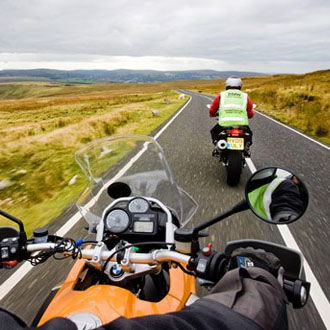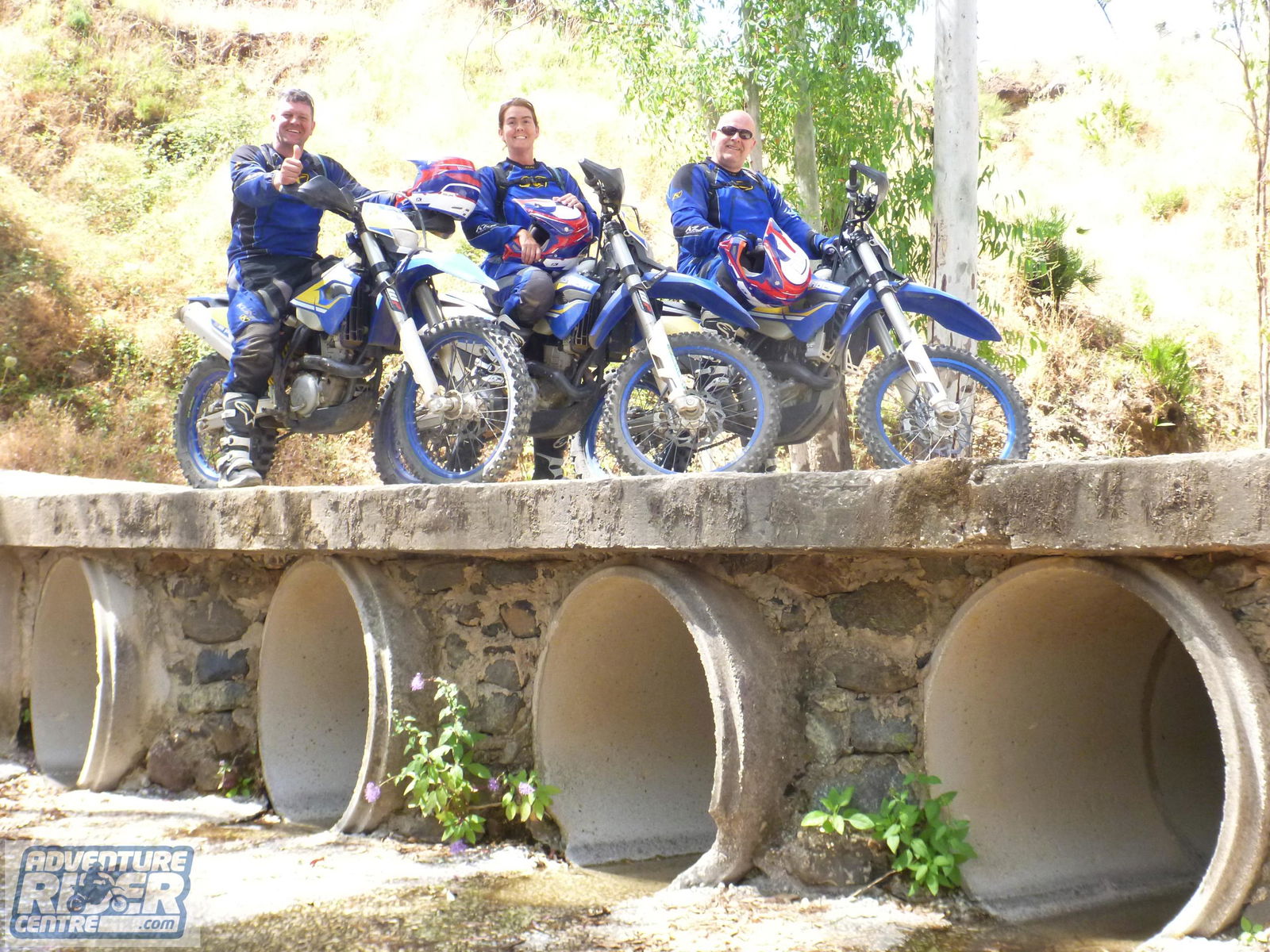Discuss: Training can be dangerous
So you think rider training is a good idea? Are you sure?


THE purpose of training is for the trainee to acquire the knowledge, skills and behaviours to perform a routine or task safely and effectively. So rider training is good, right?
But dig a bit deeper. Operating a motorcycle is not like operating, say, a lathe or a bandsaw. These things present the user with the same situation every time he or she hits the big green button.
Which is why, if they follow the proscribed procedures and training, they’re unlikely to lose their fingers. These are routines; pre-configured, fixed, repeatable patterns. Computers can be programmed to do them.
Even something as apparently complex as flying a jumbo jet, or a fighter aircraft, is actually a complicated but repeatable set of procedures and routines, and of fixed reactions to a relatively limited set of conditions. That’s why computers can fly planes too. It’s rare to find room in a cockpit for improvisation because it’s rare for the plane to move outside an anticipated set of conditions.
As an aside, how often have you been out riding, looked up at a couple of fighter jets zooming overhead and thought, ‘Now, THAT looks like fun’. Well, it probably is – but I’ve spoken to fighter pilots who, when they’re up in the sky, look down at bikers on the road and think exactly the same thing. Because, up there, they’re the ones who are tightly controlled, following a rigid, fixed pattern of instructions. They operate within a strictly defined framework; they ain’t free-styling it when you watch them carving down a mountain valley.
And, incidentally, that’s why bike racers tend to make risky pilots; a racer’s mindset is to take risks and improvise accordingly. Their default setting, especially under stress – ie when something unexpected happens – is not to fly by the book, not to resort to training routines, but to fly by the seat of their pants. Daredevil aeronautics look good in movies, but almost never end well in real life.
Students of the metaphysics of Top Gun will note Tom Cruise’s character – ‘Maverick’; see what they did there? – was a fighter pilot who also rode a GPZ900R. But was it his cavalier attitude to blame for the loss of his F-14 and Goose’s death? Even though the board of inquiry cleared him of fault and Meg Ryan never held it against him, deep down Mav knew alright (deep down Mav knew a lot of things, including the truth of his repressed sexuality. But let’s not go there).
Anyway, pilots also tend to make unsafe motorcyclists for the same reason (although the outcome is usually less final); because they won’t improvise. Training has taught them to follow procedures, and that situations can be managed by a learned sequence of actions.
But that’s not how it works on a bike, where the margin between success and failure lies at the heart of a web of such complex physics it’s effectively unknowable: you can write a computer programme or a mathematical formula to describe 99% of what happens to Marc Marquez mid-corner, but that last 1% is fuzzy, quantum-level stuff, known only to gods, monsters and shit-hot motorcyclists. Do you think there will ever be a day when humankind builds a robot that can lap faster than MM93? I could believe it on a plane, or in a car, but on a bike?
Anyway, back to the point.
Motorcycling, in a random road environment, is too infinitely variable to be reduced to a series of routines. There can be no grand formula for staying upright and out of trouble; there can be no manual. Of course if everyone followed the Highway Code to the letter the accident rate would plummet and fatalities would become a rarity. But (a) everyone would have to comply, and (b) shit, how dull would life be?
I believe staying safe on a bike is not about skill. Once we’ve mastered basic machine control (ie we can balance, accelerate and stop with reasonable success) if we crash, it’s not because we lack skill, it’s because there’s a disconnect between what we know, and what we think we know (I put that in italics because it’s really important).
Almost every crash – and there are very, very few that are inevitable – happens because we made the wrong choice. It’s not because we aren’t good enough, skilled enough, or lack the right training. Yes, of course we could all be faster, smoother, more alert, have greater road awareness, read the road, all that stuff. And there’s nothing wrong with being all those things – especially being more alert and reading the scene as it unfolds; although I’d argue that comes from experience, not someone telling you to do it.
So being all those things doesn’t, to my mind, prevent accidents. What prevents accidents is our behaviour and beliefs – how our mind works while we’re riding a bike. It’s stuff like:
• Experience – knowing the best course of action because I’ve been here before
• Temperament – clear-headed decision-making
• Risk management – Size of loss v probability of loss
• Outlook (dispositional optimism v pessimism) – weighing up the chances of success
• Responsibility assumption – a belief that you and you alone are responsible for whatever befalls you.
We all know experience is good. We can guess that riding with a level head and staying calm is safer than riding when angry, or upset. It’s pretty obvious having a healthy dose of self-preservation is a good thing. And clearly, faith in a positive outcome should be balanced with fear of a negative one. If you ever hear a biker saying ‘It’ll never happen to me,’ you might like to sit him down and point out that, based on statistical average, it will, every 8.5million miles.
But that last point – believing that it’s all down to you, that it’s all, and I mean ALL, your fault - that’s a big leap. It can lead to the troubling notion that victims are to blame. Some might say it actually empowers us all. But that’s a different argument.
But for motorcyclists, it means you assume responsibility for everything. If you get in a pickle it’s your fault. If a car pulls out, unseen, why didn’t you see it? Why didn’t you recognise the subtle shift in body language, or even slow down because you saw the junction, the road signs, the turn marks in the road? Did that slippery manhole cover surprise you? Did that patch of gravel catch you out? It’s your problem; it can only be your responsibility.
So here’s my problem with rider training as it stands: it can – not always, not exclusively, but it can – equip you with a belief system that (a) compartmentalises the infinite subtleties of riding reality into a rigid set of predetermined, formulated responses to specific conditions and (b) encourages the transfer of responsibility to a third party (‘How did that happen? I did what I was trained to do so it shouldn’t have happened – and, ultimately, therefore, it’s not my fault’).
Can training make you dangerous? Statistically, I have no idea. Anecdotally, we all recognise the stereotype of the super-qualified motorcyclist who consistently rides above their ability because they have certificates to show they can. They also have a higher-than-average, usually fairly pointless, crash rate.
But my common-sense head tells me to be wary of conferring merit without having earned it. So by all means go on a training course. Learn stuff. Become a better rider. Have fun, even. There are some great riding schools out there.
But my advice is do not think training makes you a safer rider. Do not imagine a certificate confers on you prowess that validates your actions. And do not think that by obeying a set of rules, guidelines and instructions, you will be safe.
Don’t put your life in someone else’s hands. Keep it in your head.







